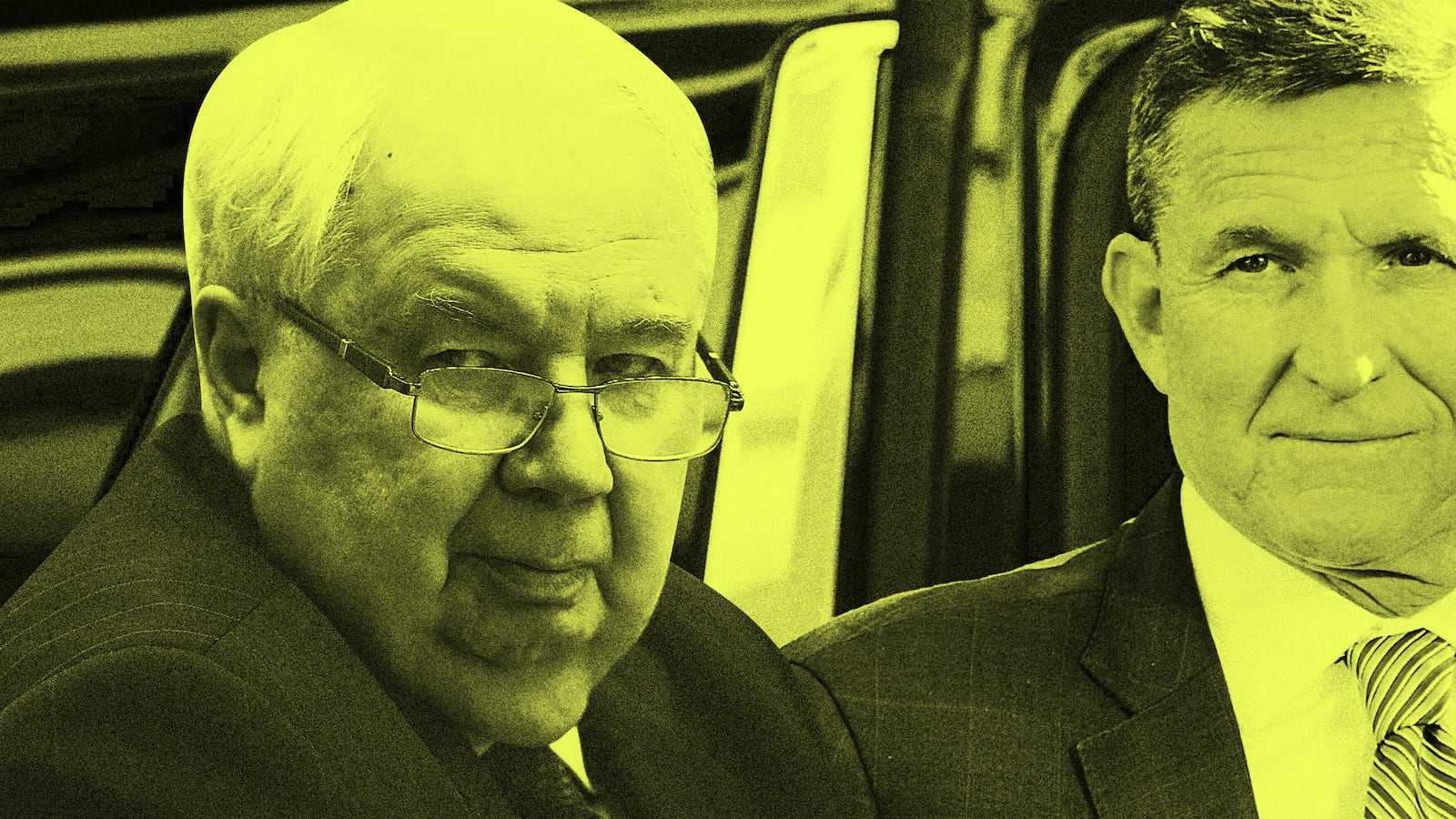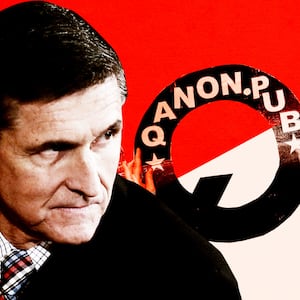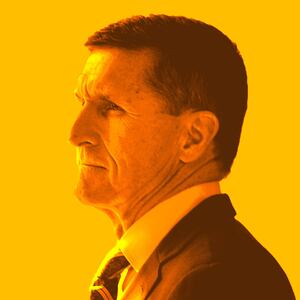In the first few days of the Trump administration, Russian Ambassador Sergey Kislyak and then National Security Adviser Michael Flynn got on the phone.
The Obama administration for months had gathered intelligence on the ways in which Russia was actively engaged in manipulating American politics. Despite that, the brand new Trump administration was already well on its way to developing a close relationship with Russia and its president, Vladimir Putin.
Kislyak and Flynn wanted to continue to build that relationship via a short, customary phone call, according to two individuals with direct knowledge of the conversation.
But reports swirled that that Flynn had talked with Kislyak during the transition following the Obama administration’s new round of sanctions on Russia. That story was quietly being refuted inside the halls of the White House and to members of the intelligence community. The message: nothing to see here, according to one former intelligence official.
The call between Flynn and Kislyak after inauguration seemed to carry on normally to those in the room listening in. The two officials exchanged pleasantries and expressed optimism about working to broker a new era of U.S-Russia relations. But then, as the two officials were saying their goodbyes, Kislyak invited Flynn to the Russian embassy in Washington to eat Russian food. Flynn’s response: “You keep telling me that.”
That one, short phrase raised eyebrows among intelligence and national security staffers in the room. The call, they thought, was supposed to have been the first official conversation between the two men. At least that’s what they had been told.
It wasn’t until much later that they realized how extensively the two had communicated during the transition.
The goal of that call during the first few days after inauguration was to try and set up an official meeting between Kislyak and Flynn in Washington. They never got that far.
Flynn resigned in February 2017 and later pleaded guilty to lying to the FBI about his communications with Kislyak.
Fast forward two years later and Flynn is still waiting to be sentenced for those lies despite the fact that Robert Mueller’s Special Counsel’s Office has all but folded and has submitted its official report submitted to the Department of Justice.
And Donald Trump still hasn’t taken a pardon for the retired general off the table.
On Wednesday, the president called into the Fox News show hosted by Sean Hannity, a close friend and top informal adviser of Trump’s, and said, “many, many people were incredibly hurt by this whole scam, but it is much worse than that,” and that Flynn “was a man who had an incredible record in the military, you see what happened to him… and you know what he has gone through.”
When pressed about pardon considerations for Trump allies such as Flynn, the president dodged. “I don’t want to talk about pardons now, but I can say it’s so sad on so many levels,” he said.
Still, President Trump has publicly gone to bat for Flynn—a man he says he greatly respects. He even went so far as to wish his former national security adviser “good luck” on Twitter on the day of his sentencing in December.
“Will be interesting to see what he has to say, despite tremendous pressure being put on him, about Russian Collusion in our great country, and, obviously, highly successful political campaign,” Trump posted. “There was no Collusion!”
An indictment filed by Mueller’s office in December 2017 said Flynn “falsely stated” that he did not ask the Russian ambassador "to refrain from escalating the situation in response to sanctions that the United States had imposed against Russia that same day.” And Flynn told the FBI also that he did not recall Kislyak "subsequently telling him that Russia had chosen to moderate its response to those sanctions as a result of his request."
Flynn was supposed to be sentenced in December. The special counsel recommended he face little to no jail time because he cooperated extensively with them following his indictment. But during his sentencing hearing, Judge Emmet Sullivan spoke out harshly against Flynn, saying “I’m not hiding my disgust, my disdain for this criminal offense.”
Flynn conferred with his lawyers and asked that the sentencing be postponed so he could continue cooperating with law enforcement.
In a filing in March, the Special Counsel’s Office said it had received all the information it could from Flynn but the judge did not set a new sentencing date for the former national security adviser, who could face up to five years in prison.
Trump suggests publicly that Flynn is still in his good graces. But Trump didn’t come to back Flynn without some doubts along the way.
Flynn’s ascension to the highest ranks of the Trump administration—quickly followed by his dramatic fall—was met with some prescient reservations, including from President-elect Trump himself.
During the presidential transition, Trump asked his close advisers if they thought picking Flynn would be “too risky,” given that Trump had been told the retired Army lieutenant general had a reputation for being a “wild man” and a “cowboy,” according to two people with direct knowledge of these conversations.
“Will he be a problem, do you think?” one of the sources recounted Trump asking during the presidential transition.
This line of questioning was spurred on, in part, by a comment President Barack Obama made to his successor during their post-election meeting, when Obama warned Trump about hiring Flynn. This was during a very brief period when Trump and Obama’s relationship was at least superficially much warmer, when Trump had publicly stated that Obama was a “very good man” whom he looked forward to consulting in the future. (Relations and communication between the two broke down almost immediately after the start of the Trump era, especially after the current president accused Obama of wiretapping Trump Tower.)
"Key personnel announcements and nominations came out as we were in the midst of [President Obama’s] final overseas trip,” said Ned Price, a former CIA analyst and spokesman for the Obama-era National Security Council. “The news, especially the appointment of Michael Flynn, hit hard. It cast a pall over the traveling White House team because Michael Flynn is someone who was no stranger to the Obama administration, having served as a top intelligence official, and someone who later made no secret on the campaign trail of his extreme and xenophobic views, which we feared would be turned into policy.”
But when Trump began flagging others’ concerns about Flynn during the early weeks of the transition, his senior aides virtually across the board vouched for the retired lieutenant general, the knowledgeable sources say. Top officials such as Jared Kushner and Steve Bannon were close to Flynn. In 2017, former New Jersey Gov. Chris Christie claimed that he was ousted from leading the Trump transition in part because he urged against tapping Flynn to be the national security adviser.
Trump, of course, ultimately took the side of the advisers who went to bat for Flynn, the “wild man” who would soon cause so much trouble for his young administration. The president liked his first national security adviser so much that during the start of Flynn’s legal woes, Trump wondered aloud if it would be possible, once the investigation into Flynn concluded, to re-install him back in the administration.








